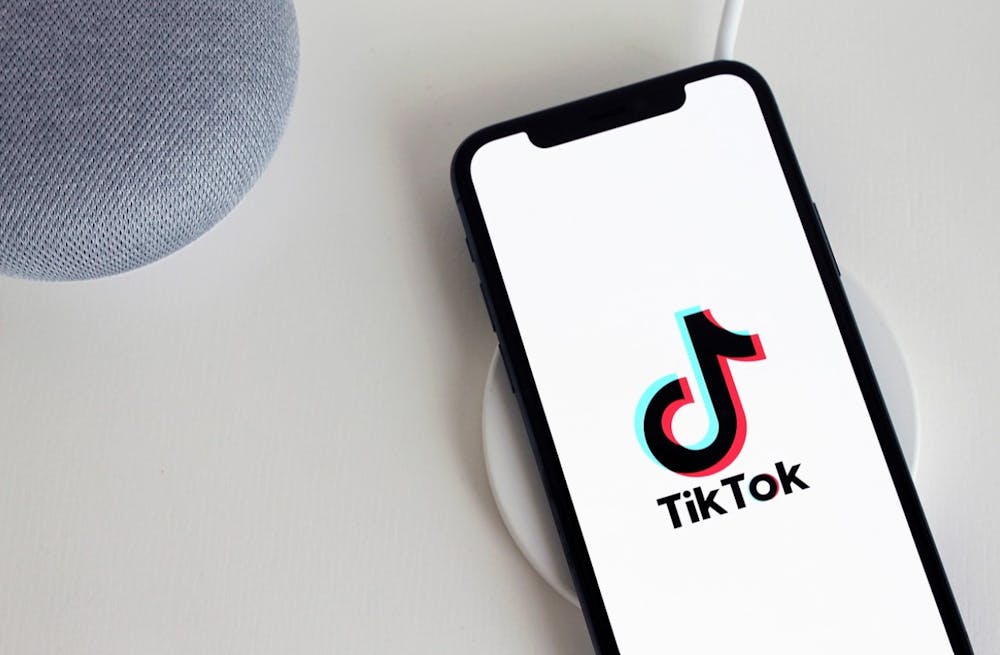TikTok isn’t just for dance videos anymore. Hopkins Assistant Professor of Psychiatry Dr. Melissa Shepard is using the platform to fight mental health stigma one catchy meme at a time. Since creating her account in early 2020, her account has accrued nearly one million followers.
Before February, Shepard’s main relationship to TikTok came through videos her sisters would send her. It quickly became apparent to her that the platform offered creators a balance between being creative and informative.
“TikTok, they tolerate me being weird a little more than Instagram,” Shepard joked in an interview with The News-Letter.
Her first video depicts her slashing out harmful mental health misconceptions with the help of a trusty stethoscope. From there, the account gained traction quickly.
Shepard recounting having to learn to be comfortable with herself in real time as the account progressed. She reported at some points feeling like her role had to be informative and professional, almost to the point of sterility. On the other extreme, she has also felt pressure to learn every new dance trend to appeal to wider audiences. Eventually, she has settled on something in the middle.
“Now I’ve kind of realized that people are okay with doctors being real people. It seems like that makes people comfortable, if anything,” Shepard said.
In its compilation of TikTok therapists, Cosmopolitan noted that Shepard was a go-to for anyone with specific questions. That’s because Shepard is known for thoroughly answering her followers’ questions in comments or separate TikToks. She described these videos as some of the most rewarding parts of her online presence, as she can see her ability to help in real time.
Currently, Shepard is licensed for telehealth services in North Carolina and Maryland. These days, it is common for her patients to recognize her on TikTok. Sometimes, new clients seek her out based off of her work on the platform. Overall, she feels good about this pattern. According to Shepard, mental health professionals have a lot of negative stereotypes to battle due to the history of the profession. If she can make the field seem more approachable, it may encourage people to get help from her or other providers.
“It feels like you already have a connection with them,” Shepard said.
Even with the fun-loving nature of TikTok, managing an online platform is not always easy, especially as a medical professional. As much as Shepard wants to get people the information they need to manage their mental health, it’s difficult to fully understand or explain someone’s particular situation in a 60-second video. Sometimes, people will tag her in videos that are spreading misinformation, and she must do her best to confront it with the resources she has available.
Overall, Shepard sees the main goal of her videos as encouraging individuals to seek help from a licensed professional rather than trying to get all their support through the short soundbites of social media.
Shepard has had to learn to manage her own mental health while having such a large presence. She takes a compassionate approach toward most of the trolls she encounters, she says, because they may be people who have had poor experiences with mental health professionals and are expressing their frustration by criticizing her work. In addition, Shepard belongs to a larger network of mental health content creators; when people share their experiences with viewers, she can remember that her experiences are common to many medical professionals on the platform. Also, mental health professionals arguably give the best advice for dealing with mental health online. Overall, the appreciation she gets from most of her followers keeps her encouraged.
“I try to remind myself that more of the feedback is positive than negative, and if that’s the case, it’s probably worth it to keep going,” Shepard said.
When asked about what advice she would give anyone who wants to share something they are passionate about online, Shepard gave the tried and true: Be yourself.
“If you have something important to say, just say it in a way that’s comfortable to you, and people tend to respond to that,” she said.





